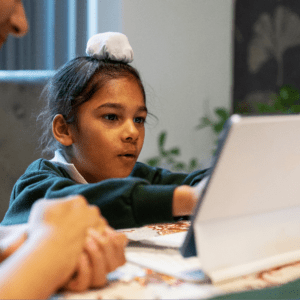Things that you need to consider:
- The quality of the course.
- Organising teaching placements.
- Your own study habits and learning style.
- How an online teaching course is perceived.
There are so many options for education these days. In Australia, there are a number of universities that offer entire degrees online, and many of these are exclusively online and do not have a physical campus.
It can be tempting to apply to attend one of these universities out of sheer convenience. You can study from home, you don’t need to go in for any classes, and it can be more flexible around your schedule. There are many benefits of learning online, and the main one is that it is more accessible for those who cannot attend a typical face-to-face class.
There are a few things that you need to consider before you enrol in an online teaching degree:
The quality of the course.
Unfortunately, not every website that claims to offer a reputable online degree can actually deliver. I’m not even talking about how highly regarded the individual university is; there are some organisations that claim to be able to deliver a recognised degree and they cannot.
Before you enrol in any course and put a lot of money into your education, you want to make sure that you thoroughly research the university that you will be studying at. Be sceptical of any website that does not specifically claim to be a university or any online courses that don’t actually give the degree name that you will be studying.

Online learning can be very successful and many universities do it very well, but without a bricks-and-mortar campus, you need to make sure that you’re not getting swindled. Many courses can also be fantastic and teach you a lot, but not be able to qualify you to be a registered teacher in your country. It is very important that if you have any doubts about the degree that you are planning on enrolling in, you contact someone to ask these specific questions.
Organising teaching placements.
Organising teaching placements can be a real headache for any university. I don’t know of a single university where the School of Education doesn’t consistently struggle with finding placements for all of its students.
If you’re doing your degree online, it is likely that your university is not in the local area. It may even be the case that none of the staff at the university knows your area and that they don’t have any relationships with the local schools.
Finding teaching placements is all about relationships. Many universities have agreements with schools that the school will take a certain number of their pre-service teachers in exchange for professional development or resources every year. If your university is 100% online, it is unlikely that they have fostered these relationships.
How many online universities manage this problem is simply making their students organise their own placements. There are always rules about not doing your placement at a school that you went to or that you have family working at, which can greatly limit your options of finding a school yourself. This places a lot of pressure on the students, and some don’t manage to find a placement before their deadline.
Your own study habits and learning style.
Learning online is not easier than learning face-to-face. Sure, it may be more flexible, but when you’re learning online you need to have advanced organisational and study skills in order to excel.
For some students, online learning works very well. I would say that these students are not the majority. Most of us work better with more structure and when we are forced to refocus on a regular basis, which heavily favours needing to go on campus or meet with teachers regularly.

The difficulty of online learning really surprises people, and it is best that you enrol in an online degree prepared. Join a MOOC (Massive open online course) for a couple of months and see if you can stick with it. It will be good practice and help you make a better-informed decision about which degree you choose to pursue.
How an online teaching course is perceived.
In a 2007 study, principals expressed apprehension about teachers who had earned their degrees through an online course. Specifically, they were concerned about the teachers’ dispositions and their readiness for the social demands of teaching.1
While things have changed since 2007, many principals still feel the same way. Principals certainly have opinions and even preferences about universities that offer teaching degrees. There are many universities and colleges out there that offer teaching degrees and do not do a very good job.
If you have a teaching degree from an online school that the principal of a school has never heard of before, it raises a lot of questions. This isn’t necessarily a bad thing, but it can become one when they have other applications from other teachers that do not raise these same questions.
Should I avoid online universities?
Online universities are a fantastic option for many people. They make it far more accessible for people of a range of backgrounds to get into teaching, which is something that we certainly need more of.
You do need to be aware that it is different, though. You may struggle to study online, and there are added pressures as you need to take more agency in your learning yourself. Don’t discount them as an option, but you need to do some research (including some introspection on your own habits and skills) to determine if this is the right option for you.
References:
1John A. Huss (2007) Attitudes of Middle Grades Principals toward Online Teacher Preparation Programs in Middle Grades Education: Are Administrators Pushing “Delete”?, RMLE Online, 30:7, 1-13, DOI: 10.1080/19404476.2007.11462040





